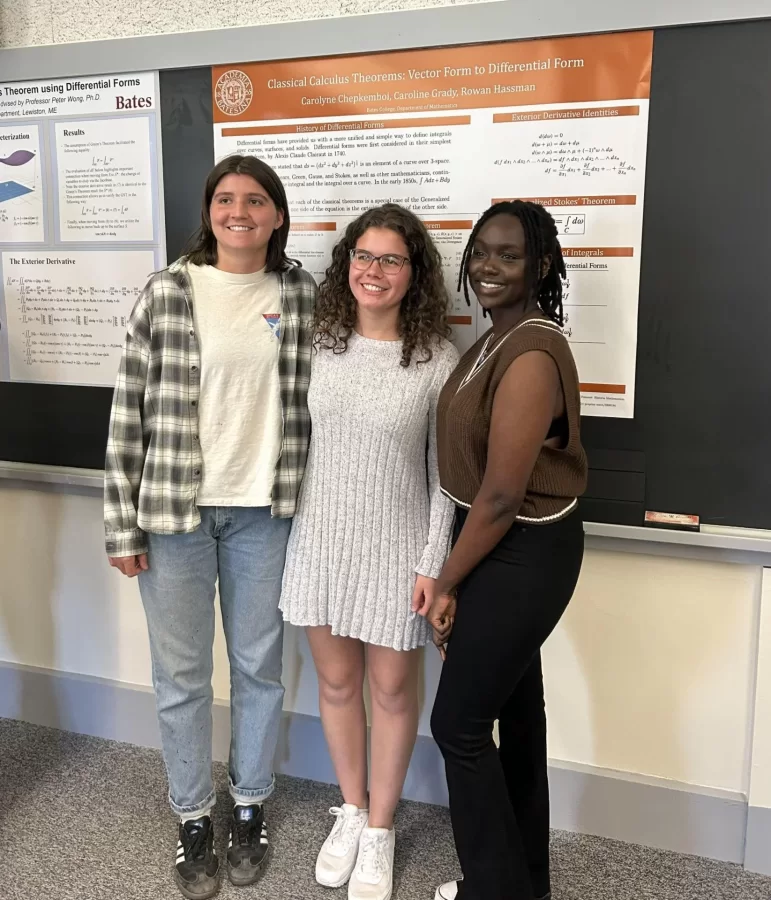Choosing Senior Seminar or Thesis

The senior seminar and thesis experiences in the mathematics major at Bates College highlight mathematical research, presentation, writing, and group collaboration. We see these in many ways as students
- learn to work on a focused project, independently and in collaboration with others;
- increase their ability to pursue self-directed learning and build self-sufficiency;
- see connections across various mathematical disciplines;
- interact with others to solve mathematics problems;
- present the results of their work at talks, meetings and poster sessions;
- write mathematics in a clear, professional style that captures the reader’s interest; and
- explain mathematics comfortably to a variety of audiences.
There are two categories of senior experience, each requiring at least one semester of work:
- Senior seminar. Typically offered in the winter semester of the senior year, the senior seminar focuses on a topic chosen by a faculty member. Senior seminar is an intense experience involving group work and several presentations in a small classroom environment. Sources are usually advanced readings, either from a text or published paper. There may also be opportunities for students to research their own questions, and then present the results to the class and in writing. See the department’s Seminar Information page for details.
- Senior thesis. Senior thesis can last one semester or a full year, and focuses on a topic chosen by the student, ideally in conversation with one or more math department faculty members. Senior thesis involves individual work, one-on-one advising by a faculty member, and several group meetings with other math senior thesis writers. There are different kinds of thesis opportunities, detailed on the department’s Thesis Information page.
To help you decide which format will be best for you, the math department holds an information session during the winter semester. This info session gives faculty and seniors an opportunity to talk about their experiences with the senior seminar or senior thesis, and gives juniors a chance to ask questions. Sophomores and first-year students are also welcome to participate in this meeting. Faculty and students both attend the first part of the meeting, while the second part is reserved just for students.